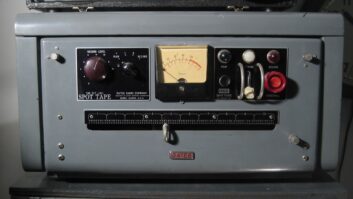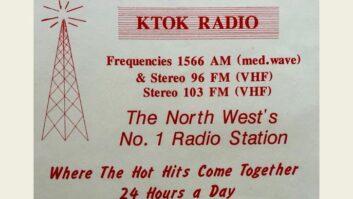
SLIEMA, Malta — Radio played a prominent role in the recent Maltese general elections.
Taking place in March, the elections brought about a major shift in the political landscape of the country, as the Partit Laburista (Labour Party) won by an enormous landslide against the Partit Nazzjonalista (Nationalist Party), which had been in power for 15 years.
A long and sometimes feisty electoral campaign was characterized by the overwhelming influence of electronic media as well as an “Americanization” of marketing tactics. Radio, in all its forms, played an important role in each party’s search for votes.
In the aftermath of the election excitement, however, many stations, mirroring political changes, have found that they are unable to keep up the tempo. The Partit Nazzjonalista’s Radio 101, along with its sister TV station, Net TV announced that they were suffering from a huge financial crisis.
The victors have also had to face reality as one top employee after another leaves the Partit Laburista station, One Radio, to join the new ministers and parliamentary secretaries to take on government-based public relations and communication roles.

Suddenly, radio in Malta has had to apply the brakes after months of high-pitched activity needed to meet the challenges of an arduous electoral campaign. Newsrooms in particular have had to downsize in a market that is as small and restrictive as it is competitive.
Further, public broadcasting services, Radio Malta and Magic FM, are now facing credibility issues following the campaign in which they were frequently accused of pro-Partit Nazzjonalista bias and, on several occasions, were condemned by the Malta Broadcasting Authority.
The controversy mushroomed into an ugly spectacle following a public service broadcasting call for the authority chairman to resign — unheard of in the history of Maltese broadcasting for a contractor to demand this from its regulator.
Commercial radio stations took more of a sideline attitude to the fiery politics, while the Catholic Church’s Radio RTK displayed a balanced role, which for a station already suffering difficulties as regards both its audience figures and finance, proved costly.
The station has now embarked on a project to streamline its production expenses — not too popular with presenters who have had to make way for younger, less-expensive replacements — while maintaining its news output on an already tight budget.
While the now ruling Partit Laburista is settling into its new position, radio in Malta is working to adapt itself and its approach in order to fit the present media landscape.
—Charles Flores







